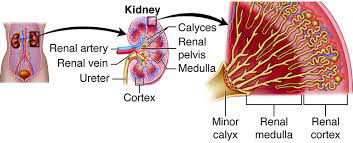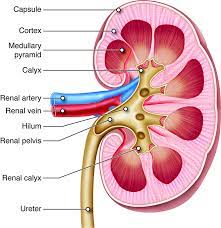Drinking coffee in moderation is unlikely to cause kidney stones. In fact, some research suggests that coffee may have a protective effect against kidney stone formation due to its diuretic effect. Individual susceptibility and other dietary factors can play a role in kidney stone development.
Does Drinking Coffee Cause Kidney Stones?
Drinking coffee and its relationship with kidney stones is a topic that has intrigued both researchers and the general public. The key question is whether coffee consumption increases the risk of developing kidney stones or if it has a protective effect.
Caffeine Effects:
Coffee is a major source of caffeine, a compound known to have diuretic properties, meaning it can increase urine production. This effect can potentially help prevent kidney stones by increasing urine volume, thereby diluting the concentration of stone-forming substances like calcium, oxalate, and uric acid.
Calcium Excretion:
There is a concern that caffeine might increase calcium excretion in urine, which in theory could contribute to the formation of calcium oxalate stones. The increase in calcium excretion due to caffeine is relatively small and may not significantly impact the risk of stone formation for most people.
Scientific Studies:
Several epidemiological studies have explored this relationship. For instance, a study published in the “American Journal of Epidemiology” found that higher caffeine intake was associated with a lower risk of kidney stone formation. This suggests that the diuretic and other metabolic effects of caffeine might play a protective role.
Types of Coffee:
It’s also worth noting that the impact might vary between caffeinated and decaffeinated coffee. Some studies have specifically pointed out that the protective effect is more pronounced with caffeinated coffee.
Overall Dietary Patterns:
The effect of coffee on kidney stone risk must be considered within the broader context of an individual’s overall diet and hydration habits. Factors such as total fluid intake, dietary calcium, oxalate, sodium, and protein intake play significant roles in kidney stone formation.
Kidney Stones: What Are They?

Kidney stones are compact mineral formations that develop within the kidneys. They are made up of various materials, with calcium oxalate being the most common type. These stones form when the urine becomes concentrated, allowing minerals to crystallize and stick together. Depending on their size, kidney stones can be painless or cause severe pain if they move or pass into the urinary tract.
Multiple factors play a role in the development of kidney stones. They include dehydration, certain diets, obesity, certain supplements, and medical conditions. The risk of developing kidney stones can also be influenced by family history and previous occurrences.
The symptoms of kidney stones include severe pain, blood in urine, nausea, and frequent urination. The formation of kidney stones is a multifactorial process involving urine volume, urine pH, and the presence of stone-forming and stone-preventing substances.
The Influence of Dietary Habits on the Development of Kidney Stones
Consuming diets rich in salt and animal proteins may elevate the likelihood of developing specific kinds of kidney stones. Conversely, diets rich in fruits and vegetables can reduce the risk.
Calcium oxalate stones, for instance, can form due to high oxalate intake from certain foods like spinach and nuts. It’s important to balance calcium intake with oxalate consumption, as calcium can bind with oxalate in the intestines, reducing the amount that reaches the kidneys and forms stones. Drinking plenty of fluids is also crucial, as it can help to dilute the substances in urine that lead to stones.
Coffee Consumption: A Risk or a Preventive Measure?
The relationship between coffee consumption and kidney stones is complex and has been the subject of various studies.
Caffeine could potentially increase calcium excretion in urine, which might contribute to the formation of calcium oxalate stones. Several large-scale studies have found an inverse relationship between coffee consumption and the risk of kidney stones, moderate coffee consumption may actually help in preventing kidney stones.
The overall impact of coffee on kidney stone formation may depend on individual factors such as the amount of coffee consumed, overall fluid intake, and specific dietary habits. It’s essential to consider these factors and consult healthcare providers for personalized dietary advice, especially for individuals with a history of kidney stones or other kidney-related issues.
Deciphering the Impact of Caffeine on Kidney Stones
The role of caffeine, a key component in coffee, in the development of kidney stones has been a topic of much debate. Caffeine affects the body in several ways that could potentially influence kidney stone formation. It is a mild diuretic, which can increase urine production, potentially helping to flush out substances that may form stones.
Research on this subject has yielded mixed results. Some studies have indicated that caffeine consumption might increase the risk of kidney stone formation, but others have found an inverse association.
Calcium Oxalate Stones: The Most Common Type
Calcium oxalate stones represent the most common variety of kidney stones. These stones form when calcium combines with oxalate in the urine. Factors that can increase the formation of calcium oxalate stones include high levels of calcium or oxalate in the urine, which can occur due to dietary habits or other health conditions. Oxalate is a substance found in many foods, and its levels in the urine can be affected by the amount consumed in the diet.
The formation of calcium oxalate stones is also influenced by other factors, such as urine volume and the presence of other substances that can inhibit or promote stone formation. For instance, a low urine volume can lead to higher concentrations of calcium and oxalate, increasing the risk of stone formation. In contrast, certain substances in the urine, such as citrate, can help prevent the formation of these stones by binding to calcium and preventing it from combining with oxalate.
Dietary Habits to Reduce Kidney Stone Risk

Adopting certain dietary habits can significantly reduce the risk of developing kidney stones, particularly calcium oxalate stones:
Stay Hydrated:
Drinking plenty of fluids, especially water, is crucial. It helps dilute the substances in urine that lead to stones. Aim for enough fluid to produce at least 2 liters of urine per day.
Limit Oxalate-Rich Foods:
Foods high in oxalate, such as spinach, beets, and nuts, should be consumed in moderation, especially if you are prone to forming calcium oxalate stones.
Balance Calcium Intake:
It’s essential to include an adequate amount of calcium in your diet. Contrary to what might be expected, a diet low in calcium can actually increase the risk of developing calcium oxalate stones. Calcium from food sources helps bind oxalate in the intestines, reducing its absorption and urinary excretion.
Moderate Sodium Intake:
High sodium intake can increase calcium in the urine, thus raising the risk of stone formation. Reducing sodium intake can help prevent calcium oxalate stones.
Limit Animal Protein:
A diet high in animal protein – red meat, poultry, eggs, and seafood – can increase the risk of kidney stones. Animal protein raises uric acid levels, which can lead to stone formation.
Consume Citrate-Rich Foods:
Citrus fruits and their juices, which are high in citrate, can help prevent stone formation by binding to calcium in the urine.
Conclusion: Key Takeaways
- Kidney stones are influenced by diet, including coffee consumption.
- Coffee’s impact on kidney stone formation is complex, with studies showing both risks and benefits.
- Calcium oxalate stones are the most common type, influenced by dietary oxalate.
- A balanced diet and adequate hydration are key in preventing kidney stones.
- The overall effect of coffee on kidney stone risk is still a subject of scientific debate.
The connection between coffee and kidney stones requires a nuanced look at dietary habits, individual health conditions, and the latest scientific research. While the verdict on coffee’s role in kidney stone formation isn’t clear-cut, maintaining a balanced diet and healthy lifestyle is universally recommended for kidney health.
Q: Can caffeine consumption help to prevent kidney stones?
A: There is evidence to suggest that caffeine, found in coffee and tea, can potentially reduce the risk of kidney stone formation. It is important to consume caffeine in moderation and maintain a balanced diet to prevent kidney stones.
Q: What are some ways to prevent kidney stones related to caffeine consumption?
A: In addition to monitoring caffeine intake, it is important to drink plenty of water and maintain a balanced diet rich in fruits, vegetables, and whole grains. These measures can help reduce the risk of kidney stone formation associated with caffeine consumption.
Q: What are the common types of kidney stones and their relation to caffeine intake?
A: The most common type of kidney stone is calcium oxalate, and there is evidence to suggest that moderate caffeine consumption may help prevent their formation. Individuals with specific types of kidney stones should consult a healthcare professional for personalized recommendations.
Q: What is the prevalence of kidney stones in the United States and the role of caffeine consumption?
A: Kidney stones are a common issue, with a significant prevalence in the United States. While moderate caffeine consumption may offer some preventive benefits, it is essential to consider a holistic approach to kidney stone prevention, including fluid intake and dietary habits.
Q: Can reducing caffeine consumption help avoid kidney stones?
A: While excessive caffeine consumption can contribute to the risk of kidney stone formation, reducing caffeine intake alone may not be sufficient to avoid kidney stones. It is crucial to address overall hydration, diet, and individual risk factors in a comprehensive prevention strategy.


Leave a Reply